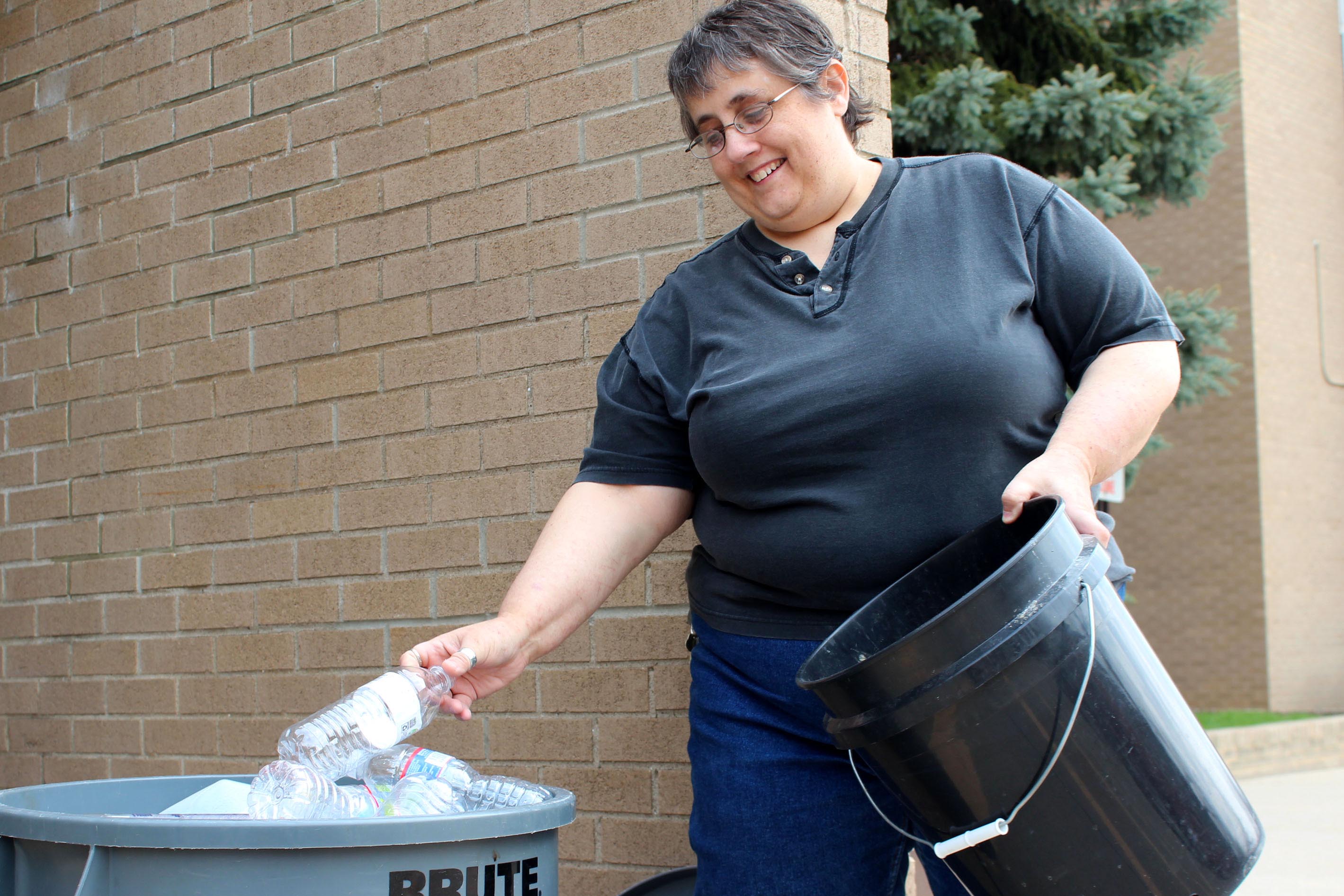 Dori Tiller and Shelley Clagg are committed residents at John Frederick Oberlin (JFO) Homes who put together a recycling program at the John Frederick Oberlin (JFO) apartment complex. For both of them, recycling and reusing have come to feel very natural, and they are working hard to share this spirit with other members of the Oberlin community.
Dori Tiller and Shelley Clagg are committed residents at John Frederick Oberlin (JFO) Homes who put together a recycling program at the John Frederick Oberlin (JFO) apartment complex. For both of them, recycling and reusing have come to feel very natural, and they are working hard to share this spirit with other members of the Oberlin community.
Q: What are some words or images that come to mind when describing Oberlin?
Dori: Oberlin is the obvious college town. Not that it’s bad, because I think the college is a good thing in the town.
Shelly: When I think of Oberlin I think of when I was a kid coming into Tappan Square and seeing the squirrels, and now that I live here seeing the squirrels all the time. So to me, Oberlin has always had a little touch of nature and always had that little touch of being connected to things differently. Oberlin is more progressive I think.
Q: How long have you been here?
Dori: All except two years now since 1969. So 40 some years.
Shelly: I’ve lived in Oberlin proper for three years, and just outside Oberlin two and a half years prior to that. And I lived in Wakeman growing up, so it was close.
Q: The Oberlin Project and many others talk about the word ‘sustainability’ simultaneously in an environmental, economic, and social sense. How would you define sustainability for yourselves?
Shelly: I think sustainability has to combine all three, because all three interact with each other.
Dori: You don’t use up everything. Keep remaking and keep reusing over and over and over again, so the Earth doesn’t run out.
Q: Can you talk about some of the sustainable action you’re taking here at JFO and in your own lives?
Shelly: Well I know that we’ve done a few times, with our craft day, encouraging people to bring a plastic bottle or something and decorate it and use it to collect the box tops for the schools, so they have something real pretty. Or they could use it as a homemade piggy bank. A couple people I think popped the lids off and made pencil holders.
Dori: Personally, we reuse as much as we possibly can. I’ve got two totes of used jeans from my son-in-law who is 6’6’’ and I made my grandkids backpacks out of those jeans, and this is the third year they’re using them. We’re just all on the same program to use everything that you can; a lot of things can be used two or three or four times.
Shelly: She takes her granddaughter’s mismatched socks and makes cat toys. I did something one year...I make dream catchers as a hobby and I’ve kind of expanded on that and call them “theme catchers.” And so I took a hoop, and I found a bunch of string...and had hanging off of it various items that I found literally in the trash.
Q: So you’ve both been doing these kind of things before?
Dori: Oh yeah, even when I had my home outside of town I took things to BFI myself. Then when I moved into the apartment, I had in my closet a recycling bin. It was just natural for me. Today I look for metal in the dumpster, and the maintenance people here when they get a large amount of metal, they’ll let me know. I give it to my daughter and my son-in-law and they take it to the scrapyard. It gets the metal out of the landfill. We found a little kids wagon, filled it with dirt, put it out front, and put flowers in it.
Shelly: And we took a mattress frame and put it by our sign, hung milk jugs and coffee cans, and planted flowers in those.
Dori: The best one was the potty chair. I was at a garage sale down in Wellington and they had this potty chair, it was an old potty chair that had been painted I don’t know how many times. Paint coming off of it, really looked bad. And I asked the woman, “how much you selling that for?” And she says “No, no, nobody’s gonna want that.” I said, “I’ll give you two bucks for it.” So I took it and I put it out by the front and I planted flowers in it. And everybody loved it! They just thought it was great.
Shelly: And we used the five gallon paint buckets, and filled them up...And the only complaint we heard was that we didn’t paint the buckets. But we didn’t want to! We wanted to show that they were used paint buckets.
Dori: And the little shelf on the side of the cabinet in there we found in the dumpster. We opened up a little shop in here, and we use the shelf now to help display our items for the open store. I took it upstairs, I cleaned it - it looks almost brand new!
Q: When did you start doing the recycling program at JFO?
Dori: It was last year that we went full swing. And it’s come second nature to us. I mean, we have about half of our residents recycling now. We’re getting more and more and more. And we’ve expanded ‘cause now we’ve got a bin on top of the rack that we collect plastic bags in. We take them down to WalMart and recycle those. We started out with one bin for plastics. Now we have two bins and we’re thinking we might need a third one. We took 2100 pounds of paper last year to Prospect school. It is just a natural thing to do.
]]>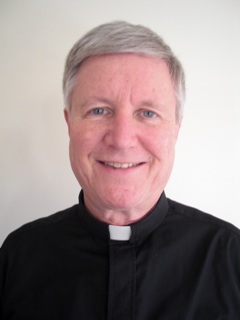 Fr. Robert Cole has been Pastor at Sacred Heart Catholic Church in Oberlin for 5 years. Born and bred in the Cleveland area, he is glad to be serving several churches in the Cleveland Diocese. Fr. Cole has been a priest for 41 years.
Fr. Robert Cole has been Pastor at Sacred Heart Catholic Church in Oberlin for 5 years. Born and bred in the Cleveland area, he is glad to be serving several churches in the Cleveland Diocese. Fr. Cole has been a priest for 41 years.
Q: What words or images would you use to describe Oberlin?
A: Unique….Period. (laughs)
Q: Would you care to explain that further?
A: It certainly is a very progressive, whether that means liberalism or great pride, or whether it stands out. It certainly is ahead of many communities, whether it is environmental issues or social justice issues.
Q: If you defined “sustainability” for your own life and perhaps for the life of your congregation, how would you do that?
A: Sustainability, I would see it in terms of making healthy actions today that provide for a wholesome tomorrow. To build for the future, to build on what you have, to build a healthy tomorrow for your church or community or organization. Always acting today in light of what’s coming tomorrow.
Q: What actions are you or your congregation that relate to sustainability?
A: We are a church so we are interested in preserving and professing our faith. We are trying to ensure the strength of our community. There has been a Sacred Heart church here for 115 years and want to make sure it’s there for another 215 or 315. We are involved in sustaining our faith community, but that doesn’t mean we don’t feel that we have obligations to the community itself, the wider community than the Catholic community. We have three recycling bins on the property, we encourage people to do that, we encourage them to be environmentally conscious.
Q: Is there anything you would like to tell your fellow community members regarding care for the environment or making sustainable life choices?
A: Are people part of the environment? We should be asking these questions. We can be all concerned about Mother Earth and all that goes with it, but if we are not concerned about taking care of human beings we are missing the point. If we are just saving the planet, we should just blow ourselves to the moon and the planet will be fine and there won’t be any people around and we’ll save the planet. The planet is not as important as the people. Our focus has to be on people. Our concern is life issues, people issues. There is a spark of God in all of us and we need to respect that.
]]>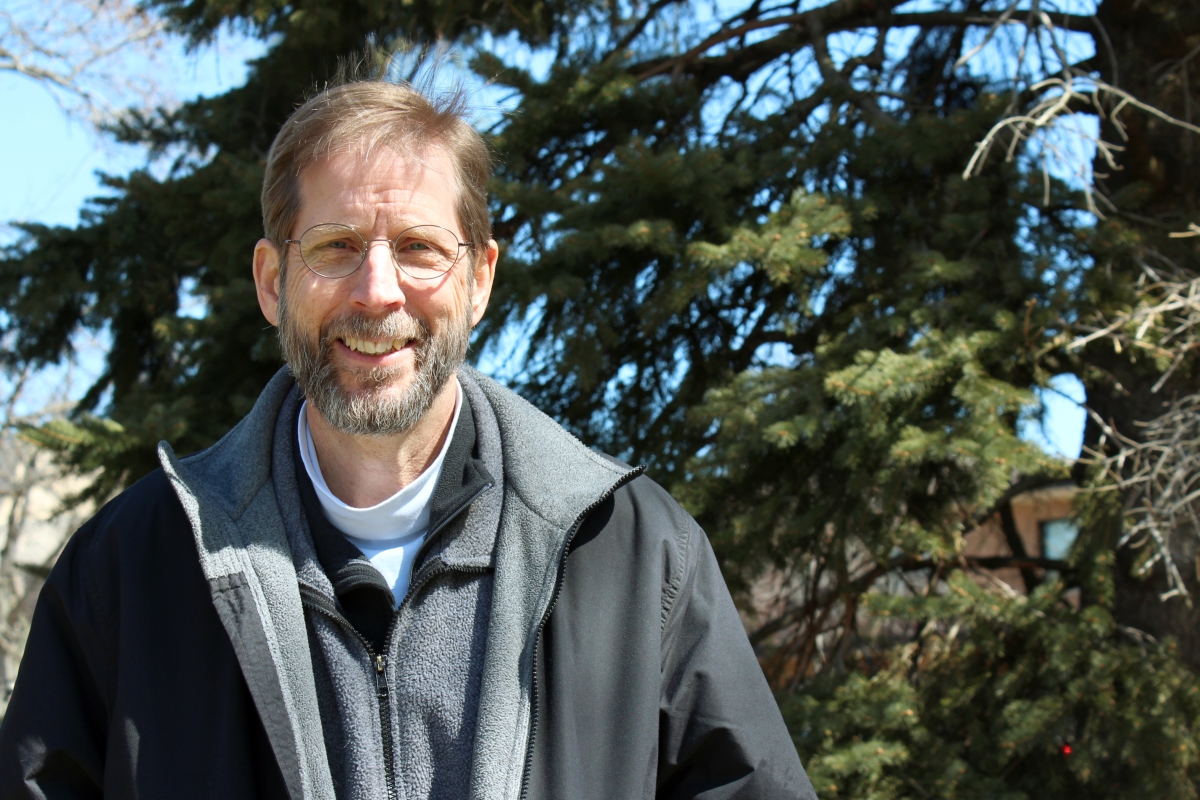 Photo by Yvette Chen OC '16David Snyder has been a resident of Oberlin since 2006. He serves as the Clerk of the Oberlin Friends Meeting. David has long engaged in environmental activism and shared that he inspired his parents to get involved in the nuclear freeze movement in the 1970s.
Photo by Yvette Chen OC '16David Snyder has been a resident of Oberlin since 2006. He serves as the Clerk of the Oberlin Friends Meeting. David has long engaged in environmental activism and shared that he inspired his parents to get involved in the nuclear freeze movement in the 1970s.
Q: What word or image would you use to describe Oberlin?
A: Progressive. Cutting edge, in some ways, in terms of efforts towards meaningful sustainability and the infrastructure to support that. I’m involved with two nonprofits outside of the friends meeting that are actors in the Oberlin Project effort. I am aware that there are things happening in this community that are connected to the climate initiative.
Q: How would you define sustainability for your own life and the life of your congregation?
A: I think of it mostly in terms of having minimal impact on natural systems, minimal reliance on resources that are finite and dwindling.
Q: What actions are you engaged in that relate to sustainability?
A: On a personal level we spend a lot of time, effort and money on having our home be as efficient as possible. The two local nonprofits I’m involved with are concerned with local sustainable agriculture and food access and increasing the efficiency of low-income homeowners’ homes. With the [Oberlin Friends] Meeting, there have been various interest groups within the meeting, folks sharing information about living with a lighter footprint.
Q: How do you feel these actions are important?
A: The average citizen of the US consumes a hugely disproportionate share of the world’s resources and it seems morally imperative to rejigger that in important ways.
Q: Is there anything you’d like to tell your fellow community members regarding care for the environment and making sustainable life choices?
A: I think as much as anything there are all kinds of levels of decisions. I am aware that an awful lot resides in people’s behavioral patterns and awareness of “gee, if I did this, I could lower my monthly electric bill by five dollars.” My wife and I have done an experiment the last couple months of turning off the power strip to the TV and the stereo when it’s not in use. That’s actually something she suggested; I usually am the instigator. It wasn’t until Cindy Frantz wrote an editorial that said that turning on hot water in any sink in the house to wash your hands only gives the hot water heater the “start up” message when by the time you finish washing your hands the hot water probably won’t even have arrived at the sink. I told my wife that for some time, but it was hearing it from somewhere else that did it. “Oh, I’ve heard that before.” So those behavioral things are significant but also pay focused attention to what you do because we all have habits that should change.
Q: Are there people or things that inspire you to have developed these habits?
A: I’m a tightwad by nature, in a good way, I hope. I’ve always just thought back to the early days of the environmental movement in the 70s, when we developed habits and awareness, many of which have stayed with us.
Q: So what sort of environmental stuff were you doing in the early 70s that got you thinking this way?
A: Well, we have a wood stove that we’ve kept during all our moves from place to place. The wood stove was part of the first oil crunch. I think it came out of that awareness that we need not rely on centralized utilities for power. Wood heat is not without its problems, but as Carl McDaniel would say, “It’s a hundred year carbon cycle rather than a multimillion year carbon cycle.” A lot of what we burn I pick up on the curb when there’s been a windstorm and when people put their tree limbs on the side of the street for the city to pick up. And there was an important mentor of mine, they had built a cedar house outside of town where they would heat with wood.
]]>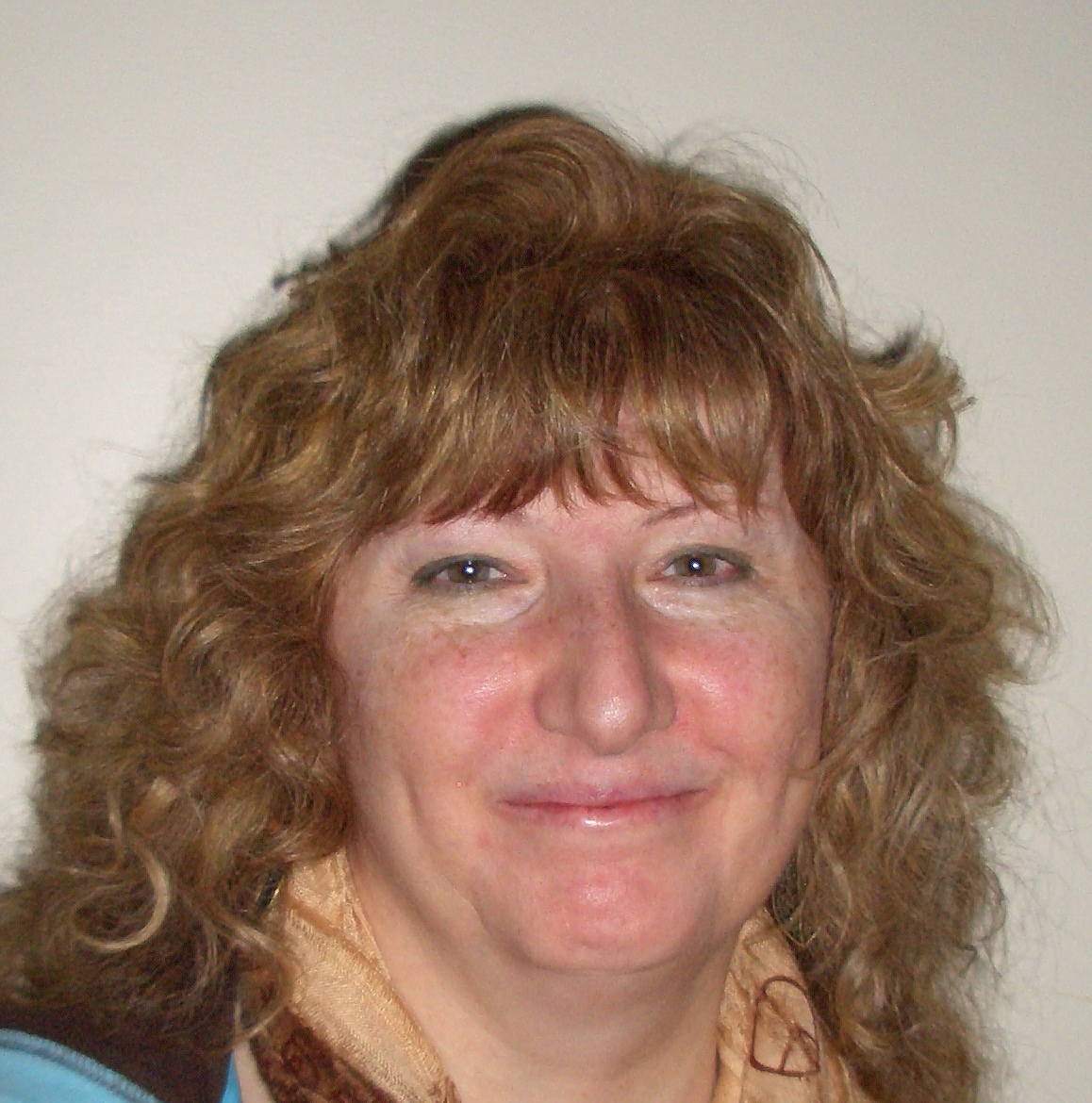 Mrs. Anita Lock has lived in Oberlin for 10 years. After visiting Oberlin when she was 15 and getting a flavor of the community, she thought, “I hope someday I’ll live here.” She is the proprietor of One-On-One Tutoring of Lorain County and is a music educator. Mrs. Lock also hosts “All Things Irish,” which airs on WOBC 91.5 FM every Saturday from 4-5pm.
Mrs. Anita Lock has lived in Oberlin for 10 years. After visiting Oberlin when she was 15 and getting a flavor of the community, she thought, “I hope someday I’ll live here.” She is the proprietor of One-On-One Tutoring of Lorain County and is a music educator. Mrs. Lock also hosts “All Things Irish,” which airs on WOBC 91.5 FM every Saturday from 4-5pm.
Q: What word or image would you use to describe Oberlin?
A: Progressive.
Q: Would you care to explain that a little more?
A: I believe that many of the people in the community and college work together to try to bring in the best means into the community, that could be ways of respect, that could be in ways of caring for the earth. They are very hopeful about it. It’s not just a matter of being vocal, but they act on it too.
Q: If you defined “sustainability” for your own life, how would you do that?
A: Working locally. Working together as a community. Pulling from our own resources and there’s just a lot right there. Anything can happen on a local level if we want to make it happen. But we have to want to do that. So it’s possible.
Q: What actions are you personally engaged in that relate to sustainability?
A: I have been practicing whole foods for over thirty years. I try to buy organic as much as I can, I try to buy locally as much as I can. I compost and we started a garden. There are so many various things that I have built up over the years and I am really just trying to keep up with that. I try to set an example by setting a pace for other people - teach people who might not be aware of whole foods and sustainability, and that there is a better way to eat and live.
Q: How do you feel that these actions are important?
A: It helps to sustain life and helps to sustain community. We only have one chance in this life and we should make the best of it. It shouldn’t be about living for us, it should be about reaching out to others. If I have an opportunity to be a blessing to others, and tell them about things they can do to make their life better and lives better for other people, then I will.
Q: Is there anything that you’d like to tell your fellow community members regarding care for the environment and sustainable living choices?
A: First off, always think about others. Any actions that you do, whether it’s your eating or whatever you’re doing, it is going to affect another person. Always think about others first, don’t think about what it’s going to do for me, but how will this affect another person?
]]>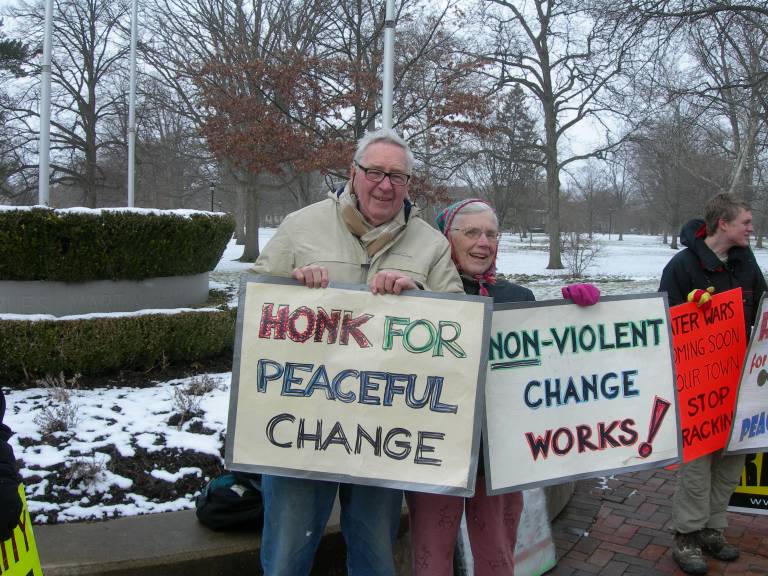 John and Anne Elder are residents of Kendal at Oberlin. John served as Pastor of the First Church in Oberlin UCC from 1973 to 1991. Anne was a Supervisor in the Lorain City Schools from 1973 to 1991. John enjoys papermaking, printmaking and watercolors. Anne is a Court Appointed Special Assistant to advocate for children in the court system.
John and Anne Elder are residents of Kendal at Oberlin. John served as Pastor of the First Church in Oberlin UCC from 1973 to 1991. Anne was a Supervisor in the Lorain City Schools from 1973 to 1991. John enjoys papermaking, printmaking and watercolors. Anne is a Court Appointed Special Assistant to advocate for children in the court system.
Q: What words or images would you use to describe Oberlin?
Anne Elder: I was on the [Community Engagement Team for the Oberlin Project] and the first question and all the people that were on the survey was a one word description of Oberlin. And my job this past week was to go over everybody’s responses and look at all the one words and choose five to suggest Oberlin. So I have been looking at A LOT of one word descriptions of Oberlin, and fearless and weird did not come up [laughs].
John Elder: The Kendal word tends to be something like “stimulate.”
AE: The largest one was “home,” which I was very intrigued – and then was “welcoming,” and then was “engaged.”
Q: How did you come to live in Oberlin?
AE: Because I went to college here and then my husband came back to work so I came with him – so we happen to live here.
JE: My father taught in the college for two years before I was born. We come through Oberlin every summer on vacation and so I was imprinted with Oberlin. You say college? I say Oberlin. And so I don’t think I ever followed through with an application other than Oberlin.
Q: But, well, if you had to define sustainability for your own life, what would that be?
AE: It would mean using as much of the earth’s resources as I need, and not to excess…mostly just not overusing the resources.
JE: It would be nice if we could even enhance the resources so future generations would have a better planet.
Q: Can you describe any actions that you, personally in your own home, or also in the wider Kendal community are taking, that relate to sustainability?
JE: We work hard on the environmental community to help people, to be conscious and helpful as possible, but there are limits, you have less control over your total community than you have as an individual.
AE: We use our bicycles whenever we can, and that’s mostly depending on the weather. And we had our Martin Luther King project this week. We went over to the Boys and Girls Club on Pleasant Street. I walked through there the other day and there was so much litter as the snow disappears. And we asked them if we came over with garbage bags, if they’d like us to help pick up. And right away, they said, “Sure!” We planned for half an hour on Wednesday, you bring the plastic bags and we’ll take all the kids out. We went, and, kicking and screaming, we got all the kids out, and they had a good time. Half an hour and it looks different. And they just began to see, a lot of interesting things because [the yard] was clear. Then they had to take care of the trash, we separated it so that everybody had a trash bag and a recycling bag, and the recycling we took back to Kendal because Kendal recycles, and we recycled all of those things.
JE: Kendal is just beginning the renovation of its original cottages, which will require the updating of the HDH (?) systems and the residents are pushing very hard to have geothermal over all of the cottages and I think we will accomplish it but there is some reluctance in some places in the organization.
Q: How do you feel these actions are important?
AE: Well, again, it goes back to making the planet be safer and to use less of the resources so that there will be things left for our grandchildren and their children.
JE: And for the residents, the payback means, lower costs, we have to watch our expenses.
Q: Is there anything you’d like to tell your fellow community members regarding care for the environment or making sustainable living choices?
JE: We should put out more distinct recycling containers. When we visited Japan, if you dropped paper, you’d get scolded. The ethos is so strong, and then you go to other countries where that’s not part of the ethics at all.
AE: But I think that because we have so much, excess of everything, everything comes in a bag or a plastic. When we went into the gym today, there were two big mail bags that someone had taken their mail out of and someone had just taken their mail out of and thrown them. But I wonder how long they would have stayed there, and I wondered why somebody would just take their mail and throw it. People are still thinking it’s okay to drop things, I’m finished with this bottle – toss it out. How do you change that?
JE: What are we doing? I think that’s the question.
Q: Are there things that you think that the country as a whole, or just the city of Oberlin, or just the Dashboard Project, could do to inspire more consciousness or inspire other people to take sustainable actions? How do we change the conversation from throwing things out to recycling and reusing?
AE: I meant to bring along that article that we had copied and put up on the board about someone who had gone to the grocery store and gotten a paper bag and put her goods in and the clerk said “well you probably don’t know but we don’t use paper anymore. When you were growing up, you didn’t do green.” And so the woman just said, “yeah, I guess we didn’t do green,” but we always just…we had glass milk bottles that were always recycled, we brought them back, we drove one car, we always put our clothes on the clothesline, didn’t have a clothesdryer, but we didn’t know about green. It was 1930s when we were growing up -- by today’s standards, it would meet all of the sustainability goals. But we didn’t have to plan that, and we weren’t saying we were being green. We did it because there wasn’t an alternative. When you bought something, they didn’t wrap it in puff-balls and when you went to the grocery store, you picked up separate apples – you didn’t have plastic bags of apples and separate things, and your milk was always in a glass bottle, and we didn’t say we were being green. We just need to remember that, sometimes it’s the march of civilization that’s done us in, and do we want to go back? Or do we just want to be much more thoughtful?
]]>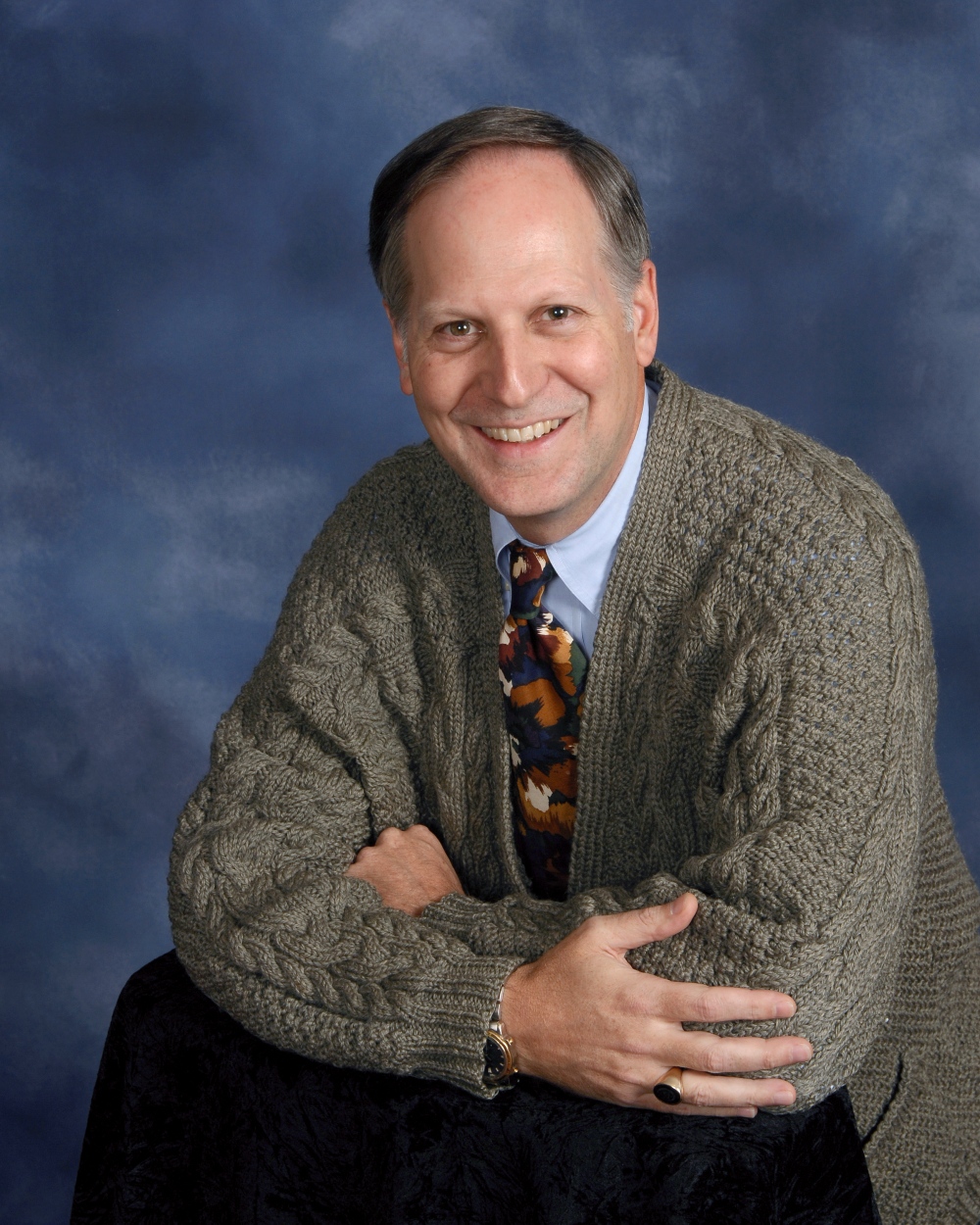 David Hill has been Pastor of First Church in Oberlin UCC for ten years. He serves as President of Oberlin Community Services, a local social services organization. Pastor Hill enjoys integrating music into worship experiences, especially jazz.
David Hill has been Pastor of First Church in Oberlin UCC for ten years. He serves as President of Oberlin Community Services, a local social services organization. Pastor Hill enjoys integrating music into worship experiences, especially jazz.
Q: What words or images would you use to describe Oberlin?
A: hopeful, engaged, concerned, green, spirited
Q: Would you care to explain any particular ones?
A: I think it’s hopeful because I think that in Oberlin we believe, rightly or wrongly, not only that we can change our community, but that we can change the world, so we look at problems or concerns and we immediately start thinking about “how can we make a difference?” and we believe we really can. We are concerned because we not only are tuned in to our community but also our nation and our world. We see areas of need and we are aware of them. Green, I don’t know how somebody couldn’t use that word in this town. The Green Arts District, the Oberlin Project, we have very sustainable buildings and sustainable practices. When we have a big event on Tappan Square, we try to compost things and recycle things, it just seems to be a regular part of the conversation. And spirited-there are a lot of folks who belong in faith communities, or who are members of faith communities. There are a lot of other people that may not relate to religious institutions but I think there’s more to it than describing them as just being a good citizen, I think there’s a spiritual element behind why they do what they do and what they choose to be engaged in.
Q: How would you define “sustainability” for yourself?
A: For me, it has to do with how do we go about our lives and practices in a way that the Earth can sustain, that are not detrimental to the planet which is so absolutely essential to our own personal survival. So, there are big picture things, but the little picture things that most of us are doing, like turning lights off, not leaving the water running, and conserving water in our toilets and our showers, when we buy new appliances, buying energy efficient ones, trying to eat locally, paying more attention to how we use transportation, they really feel like small little things that are barely making a dent, but I think that is what sustainability is for me and for a lot of other folks that are not involved in grander schemes.
Q: Is this a word that you would use to describe First Church as a congregation?
A: I think we’re working towards that. We have swapped out all the windows in the parlor for windows that not only seal better but are more energy efficient. All of our thermostats are programmable; we don’t use Styrofoam; we serve our Wednesday night suppers family-style on plates that go through the dishwasher. As pastor here one of the main reasons I switched to an iPad is so that when I go into meetings I have no paper, and when I come out of meetings, I have no paper.
Q: So how do you feel that these actions are important? What kind of impact are you having?
A: I don’t know how much of an impact we are having. But, given this is Oberlin and given the descriptors I used earlier, I guess we have to believe that if everybody did something, it would make a huge difference. I think right now people just do it because they know it’s the right thing to do. For us it’s a faith issue.
Q: Is there anything you would like to tell your fellow community members regarding care for the earth or creation or respect for nature?
A: How do we make sustainability less scary to folks? We had an energy audit in our house and one thing they helped me with was that I thought that the energy audit was going to show that all of the windows in our house needed to be replaced, but what it really showed was that we needed to do some caulking. I guess I would like to tell folks in Oberlin to not be afraid of this issue, and recognize that the more they know the more they will be empowered to do because it’s not as scary as they might think it is, and [it can be] less expensive.
]]>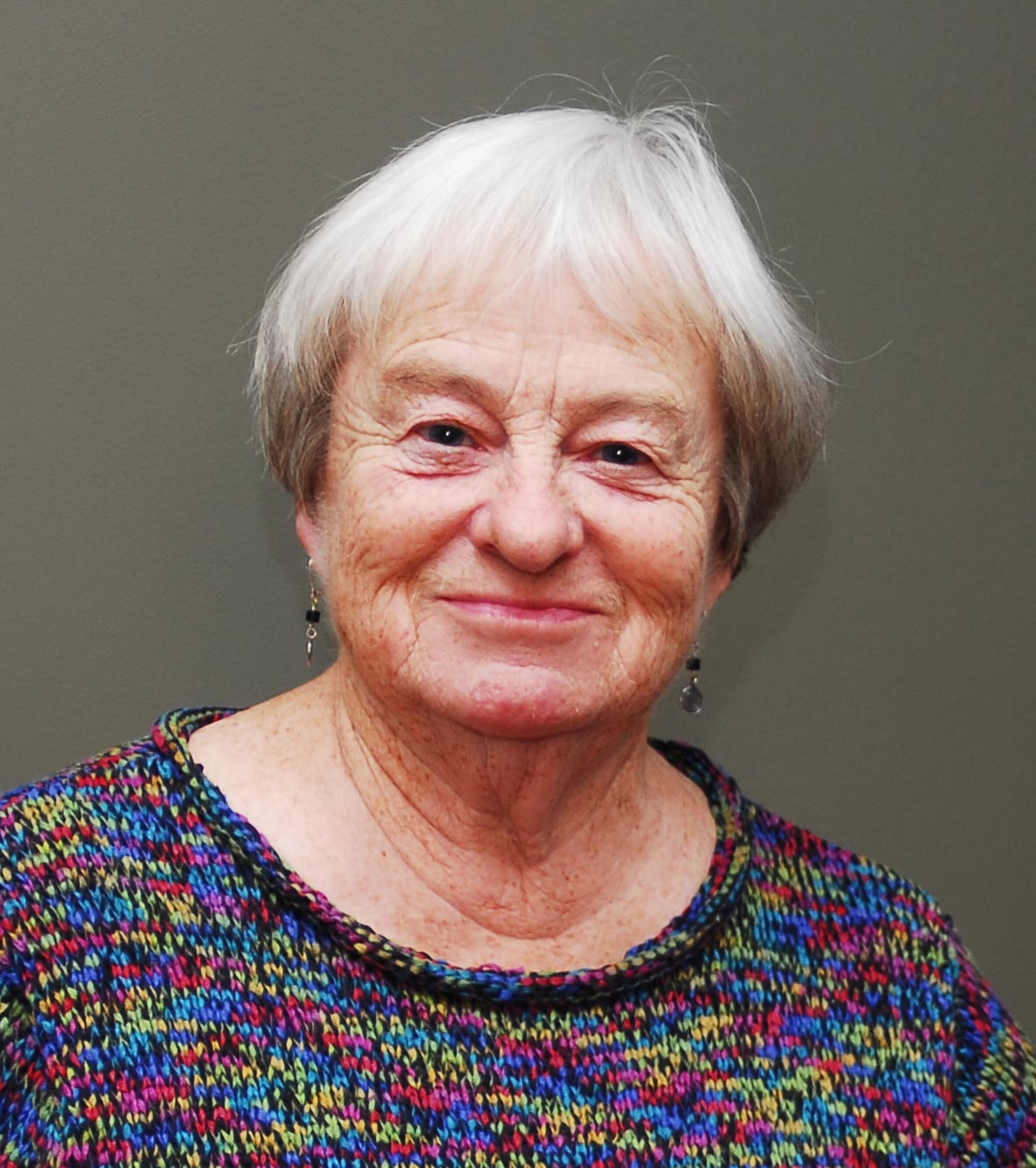 Midge Brittingham has been a resident of Oberlin since 1969. She is an alumni of Oberlin College, class of 1960, and is the mother of two Oberlin graduates. She served many years with the Oberlin College Alumni Association and is an active layperson at Christ Episcopal Church in Oberlin. She and her husband Smith enjoy hosting meals for international students at their house each Sunday night.
Midge Brittingham has been a resident of Oberlin since 1969. She is an alumni of Oberlin College, class of 1960, and is the mother of two Oberlin graduates. She served many years with the Oberlin College Alumni Association and is an active layperson at Christ Episcopal Church in Oberlin. She and her husband Smith enjoy hosting meals for international students at their house each Sunday night.
Q: What word or image would you use to describe Oberlin?
A: Diverse. As a person I know who has recently moved to town said, “Oberlin was a community, especially the schools, there are all kinds of people and different ethnic groups and races and different economic backgrounds, all in a small town.”
Q: If you defined “sustainability” for your own life and perhaps for the life of Christ Church’s congregation, how would you do that?
A: We want to try and conserve, particularly energy, that’s been our most recent church project, not spend more energy than we can possibly save, so we preserve the balance of nature and the rest of us, who are also part of nature.
Q: Are there things that Christ Church is doing to be more “green”?
A: We have done some things. We’ve put in new insulation in the church and the parish hall, and new wiring. There is an active group in the vestry that is working on this with our properties. And we educate ourselves, the whole parish does.
Q: How do you feel these actions that you yourself or the church are taking are important?
A: I think they’re very important, I think we need to keep remembering to think of it, other things get in the way. Money, or lack thereof. Many of these things take more money than we have, though they possibly will save money in the long run. I think that from a spiritual point of view, [there is] the idea of being stewards, don’t tear [the Earth] apart. We also do things like recycling paper and we don’t use Styrofoam cups, and we use fair trade coffee.
Q: Is there anything you’d like to tell your fellow community members regarding care for the environment or making sustainable life choices?
A: Well, it seems to be the simple things like recycling, just in your own household, are not followed by everybody. It’s not much of an effort. We have a lot of students that come for our Sunday dinners, so instead of bottled water and soda, we use one of the Soda Club, you put your own gas in the bottles and then the flavor, so a lot of students come in and have never seen this, they’re so impressed by this effort. When we think about the coke or juice bottles that are transported hundreds of miles, this is a small effort that we can do and it reaches out to them because they see there is something else that can be done.
Q: You have 40 or 50 students every Sunday?
A: It’s not all international, but it started out that way. It’s more than half. My husband is the one who likes to cook, he makes the bread from scratch, and he makes everything from scratch. We try to use local as much as possible, not always possible for so many people. It’s important to buy locally and use the local stores and restaurants to try and keep those folks going.
Quotes:
“We want to try and conserve...so we preserve the balance of nature and the rest of us, who are also part of nature.”
“It’s important to buy locally and use the local stores and restaurants to try and keep those folks going.”
]]>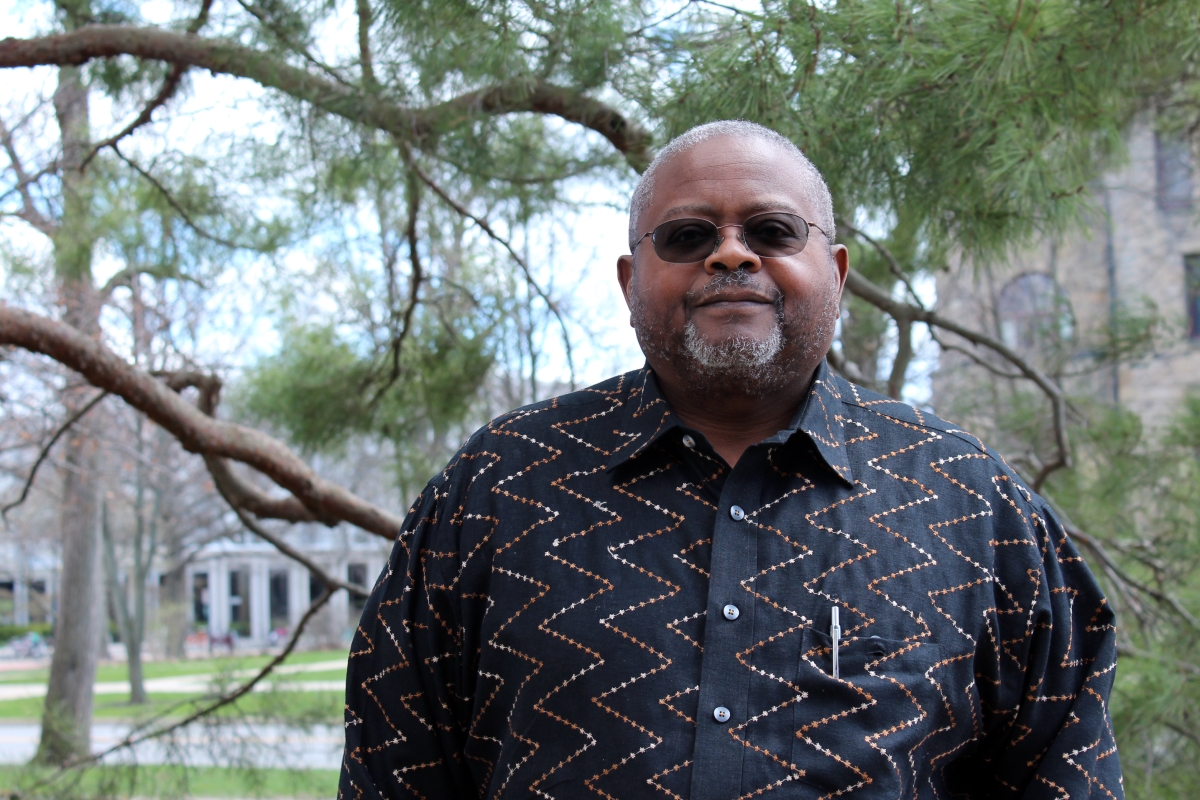 Photo by Yvette Chen OC'16A.G. Miller is Professor of Religion at Oberlin College. He has lived in Oberlin with his wife Brenda Grier Miller since 1991. In 2001, he and several other Oberlin community members started the Oberlin House of the Lord Fellowship, part of the House of Lord Pentecostal churches.
Photo by Yvette Chen OC'16A.G. Miller is Professor of Religion at Oberlin College. He has lived in Oberlin with his wife Brenda Grier Miller since 1991. In 2001, he and several other Oberlin community members started the Oberlin House of the Lord Fellowship, part of the House of Lord Pentecostal churches.
Q: What word or image would you use to describe Oberlin?
A: Unique.
Q: Would you care to explain that a bit?
A: Oberlin is a unique community in northeast Ohio for sure, maybe even in the United States. Not only because of the college itself but also because of the history that surrounds it. It certainly becomes an interesting bubble in this part of Lorain County. It is a fairly diverse community but it is surrounded by less diversity. Unique says a lot about who we are as a community.
Q: If you defined “sustainability” for your own life and perhaps for the life of your congregation, how would you do that?
A: I think it means being conscious of environmental issues. “Green” tends to get limited to uses of resources and I’m not sure that we have really come to understand the strong and broad social dimensions of that within this community. What do people really mean by green and how does that agenda impact the “least of these?”
Q: What actions are you or your congregation engaged in that relate to the definition of sustainability that you just gave?
A: I think we have taken several initiatives, working with our congregation to think about health studies and building and developing a more health conscious congregation that includes food development. We encourage family and community gardens, encouraging people to participate in the City Fresh program.
Q: Is there anything you would like to tell your fellow community members regarding care for the environment or sustainable living choices?
A: How do we think about environment when, for instance, many of our neighbors, i.e. surrounding communities, are farming as their livelihood? How do we think of and begin to develop conversations with them particularly in light of their own economic survival is dependent upon certain kinds of agri-acts, agriculture activities, that may not be green or organic? How do we open up a conversation in the community that we are surrounded by? How do we help local small communities and individuals think about those efforts that can really be sustainable in terms of energy issues besides food issues and everything. I suspect that if you were to tap into most working class folk in his community, and ask them about their parents and how they lived, they would be the greenest people in town. They don’t run the dryer to dry clothes, they have clotheslines, I don’t know if they compost but they use and raise their own chickens. There are all kinds of things that get you to realize that there are all these things that are done not out of a concern for green but a concern for survival. How do we help those people think of those things? There are all kinds of ways to think about these issues, but we have lost great traditions from back in my day. Think of my grandmother, how many times did she use that tinfoil before she threw it away, recycle that tinfoil, you’d be surprised how folk did things because they had to do these things to survive, but they had green potential.
]]>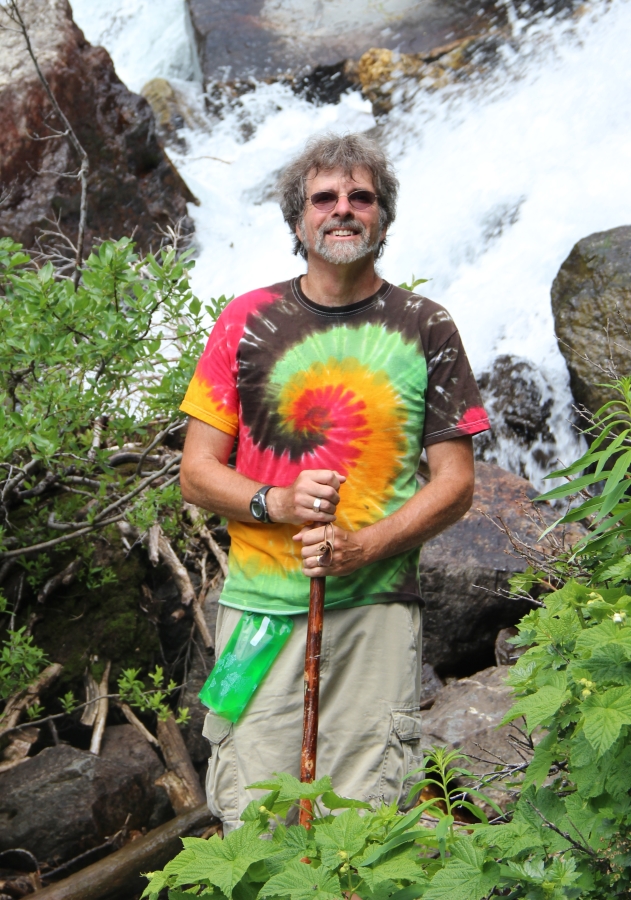
Steve Hammond has been Co-Pastor of Peace Community Church in Oberlin for 33 years, along with his wife Mary. Steve and Mary are both Protestant Chaplain Affiliates for the Oberlin College Office of Religious and Spiritual Life. Steve was the youngest of 18 children in his family. He enjoys running and hanging out with his grandchildren.
Q: What words or images would you use to describe Oberlin?
A: Friendly, historical, trees, Tappan Square, the church, campus, certain people that I know just being here. I just think Tappan Square is the greatest place in the world. I try to get into Tappan Square every day if I can. One of the things I like about Oberlin is that it is such a historic place, that’s another reason I like Tappan Square, you sense the history of this place as you’re walking through there. I think the trees in this town are amazing, I love it when the leaves are off the trees in the winter and you can see how many trees there are. There are a lot of people in this town I respect and I’m glad these people live here.
Q: If you defined “sustainability” for your own life, how would you do that?
A: I think sustainability means that I am conscious of things being limited. Sustainability is trying to preserve the future.
Q: What actions are you engaged in that relate to sustainability?
A: I made a conscious decision to be a vegetarian for sustainability reasons. It doesn’t make sense to be feeding animals all that stuff so I can eat them. We bought a Prius. We keep our heat down to 60 degrees when we are working at home so we are often cold, but you can always put more layers on. We’ve done all of the light bulb things, put in high efficiency furnace, put in new storm windows to cut down on our energy consumption. I take showers and use as little water as I can, turning it off when I am rinsing and stuff. We don’t keep lights on, we recycle.
Q: What kind of sustainable activities does the church engage in?
A: There are a lot of people within the church who do personal stuff. As far as the building itself, we have done the energy audit, we put in a new furnace, as efficient as we could. I would love to have solar panels on the roof, but I just don’t see how it can happen in that building. People are committed for economic reasons as well as sustainability reasons but we keep the sanctuary heat down low during the week, we don’t need to have the heat up past 50 degrees.
Q: How do you feel that these actions are important?
A: You hope that the efforts people make, as more and more people do more and more efforts, it’s going to help this snowball get going to even bigger issues that we can take on in this society. But I guess I am a thousand points of light person.
Q: Is there anything you would like to tell your fellow community members regarding care for the environment or sustainable living?
A: Think very consciously about what we have, and that we can lose that so easily. We can take responsibility. We can help. We should be so about this community, which in its past has been a leader in important issues in our country. Once again Oberlin can be about saving the world. And we should be so excited, so supportive, so helpful, so hopeful about these next twenty years in this town and what we can help create. Awareness and education is so important, and getting people in touch with each other.
Q: Can you explain a little more about Oberlin’s history of “changing the world?”
A: You go back to anti-slavery days, when people thought that slavery could never be ended. There were people in places like Oberlin that thought, “We can start working on this” there’s a movement that can get going. Think about gay rights and women’s rights, all of those issues have been so hard and seem so intractable and seem like they’re never going to change. Oberlin has taken a stand and things have changed. Civil rights movement, all of those things, Oberlin has been a part of that. We look at the environmental stuff going on and you wonder, how is this going to change? It’s going to change because some people rise up and make a change and Oberlin has been good at rising up and making people see a change can be made.
]]>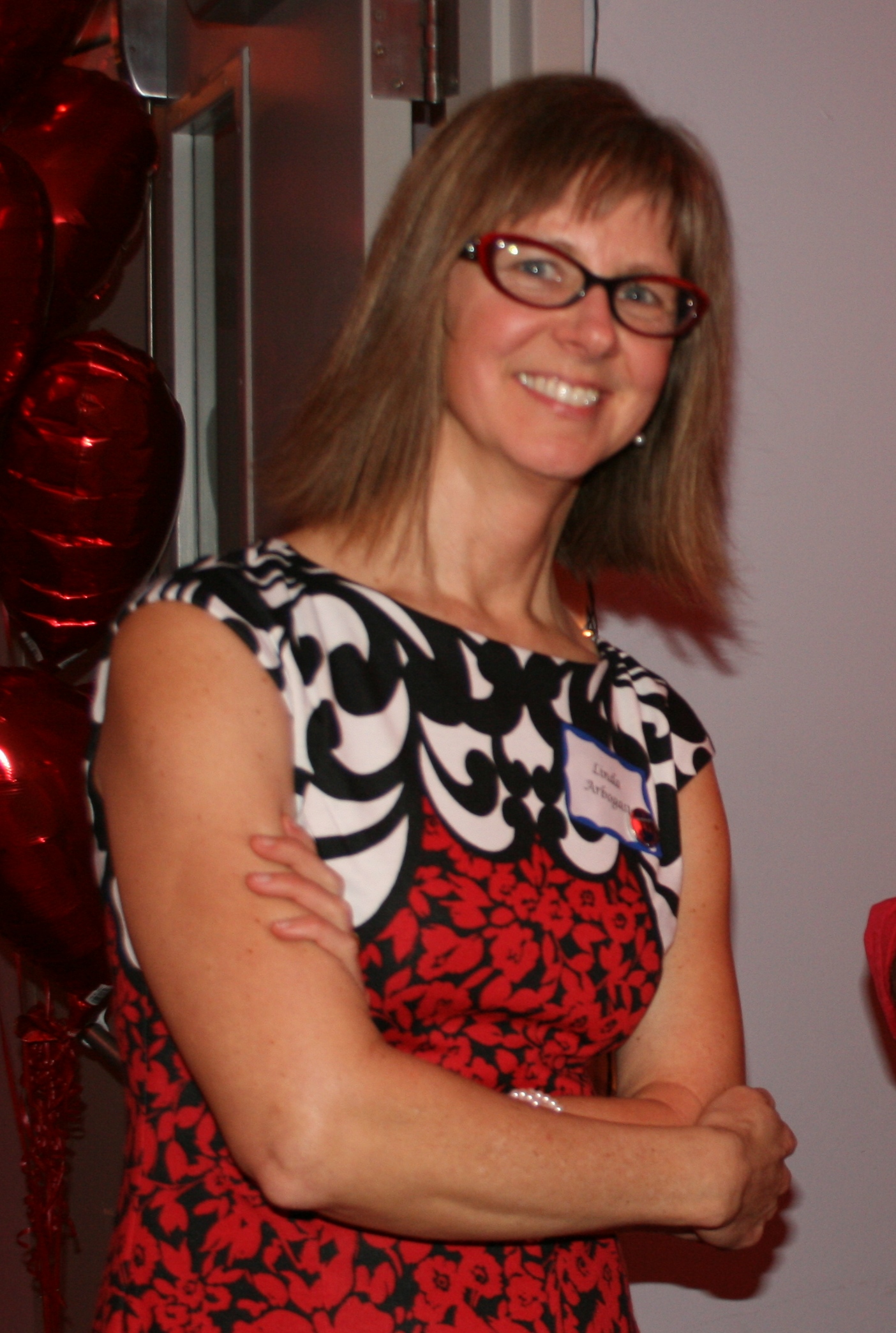
Q: What word or image would you use to describe Oberlin?
A: Progressive. My kids go to school here, my husband and I work here, we definitely moved here because this is a unique place. To me, Oberlin has the mesh of Midwestern, hard working, down to Earth people, but at the same time there’s more of a progressive spirit, willing to look at new things both socially and environmentally and take them on in a way most Midwestern communities are more apprehensive to do. I thought Oberlin was a really nice mix of those things. We wanted to look for a place where our work would be fulfilling and especially the lives of our kids. I really appreciated as a kid having a lot of space and having animals and just being immersed in nature and wasn’t finding that on the east coast in any way that we could afford. It wasn’t where I wanted to raise my kids, so we found Oberlin. It’s not without its challenges but overall I do like it a lot and I think my kids are better for being here. The kids are learning a lot more than they would in a lot of other environments.
Q: What would your personal definition of sustainability be?
A: I would say that sustainability to me is doing things in your life that are in community with what’s around you, other people and nature. I appreciated how John Petersen talked about [in a presentation] how we used to have biofeedback in our daily lives and as a farmer you get that and it becomes such a part of your life. But western culture, we’re more industrialized and we lose part of that. To me sustainability is being one in your environment, being a part of it in that your actions have responses and nature affects you.
Q: If you think about Oberlin Community Services, would that change your definition of sustainability?
A: It’s a challenging topic when you’re looking at low-income people and the work that we do. On the one hand, we give emergency assistance so somebody comes in and they’re in crisis, our job is to help them get through their crisis. We’ll pay somebody’s electric bill; we’ll pay somebody’s rent. But at the same time, we are trying to find ways to be more proactive because we try to help people realize where they might be able to cut down. There are all sorts of things that happen to people’s houses, some are within their control, some are not. We still want to be proactive and educate people about how they could cut that use and help them prioritize in a way that’s not patronizing because people have choices and people make choices. We work with POWER closely, as it used to be housed here, and our caseworker helps people fill out applications to get involved with POWER.
We are also becoming more involved with organic gardening and we have a really great an organic garden in the back. It started small and has grown immensely over the last few years. We got an award this last year for it and we are really pleased, a countywide award. The idea of the garden, though, is so people have more fresh produce, to improve the quality of the food that we offer people, but also have people understand more about food, especially kids. So as people are getting groceries, we’ll say, “Oh there’s a lot of cucumbers out there, why don’t you go help yourself?” and even just harvesting is a start. The next time we try to increase their involvement to weeding and watering and kids come in regularly on a drop-in basis. A lot of people talk about starting with kids and how important that is. It really is amazing to me how many adults, young adults, even in their twenties, say, “You can make tomato sauce with these tomatoes? How would you even do that?” just really have no idea.
We’re working with OSU extension, we have classes that we are giving in the evenings, nutrition and cooking, and before our food distributions that we have once a month, we have cooking demonstrations to show people how to use the food they get. There’s become kind of fun and there’s been a core group of people who come early to come and do that. Constantly trying to be proactive, but how can we help people in a more sustainable way that will help them in the long run?
]]>